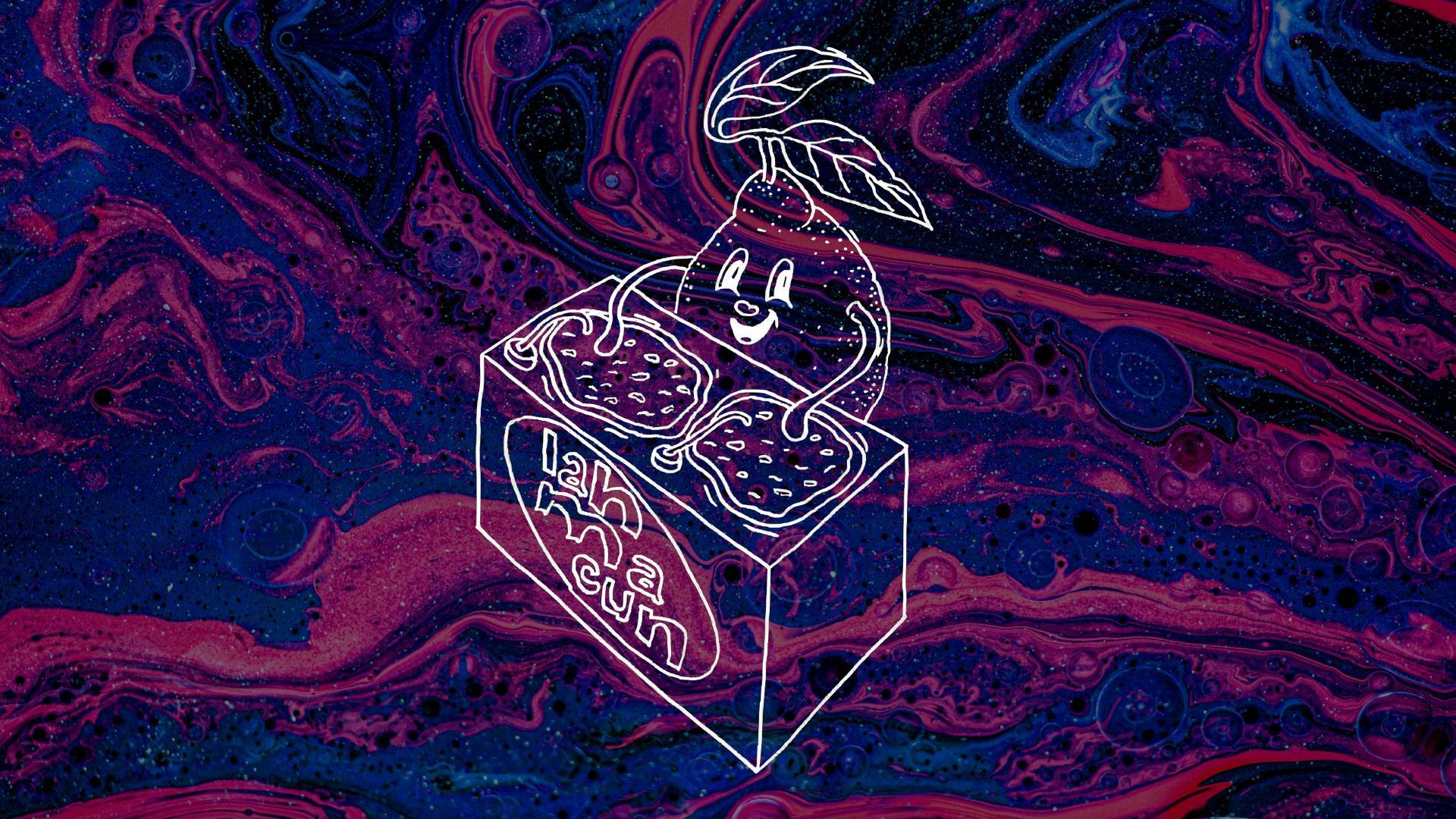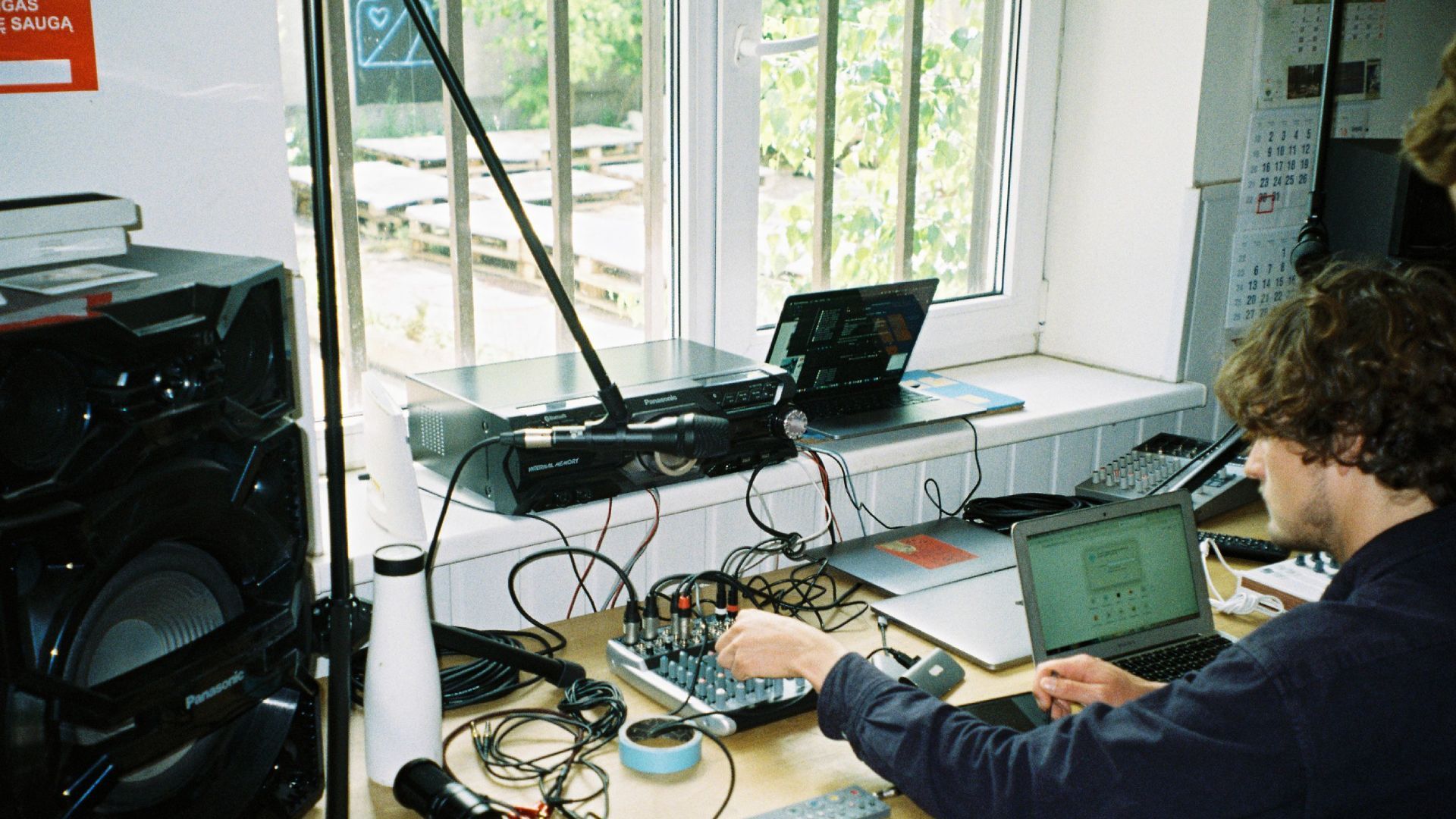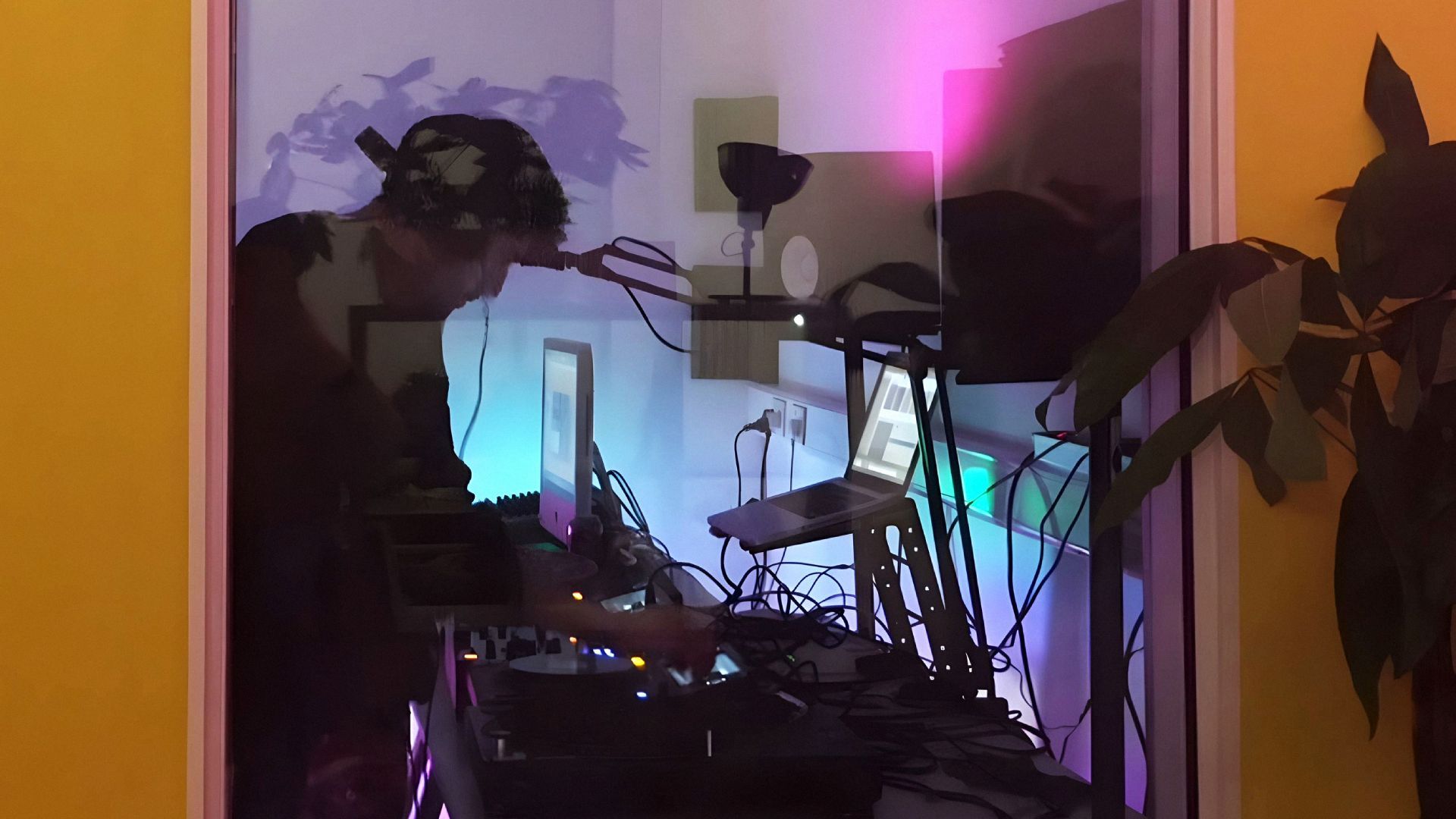What does the word “community” stand for?
Exploring the gentrification of words and concepts with DJ SchluchT
Author: Pavel Kirpikau
Photos by: DJ SchluchT
In an era where the word "community" seems to be everywhere - from online platforms to oat milk cartons - Radio Plato hosted a workshop titled "Home is not your house: community here, community there." The event, featuring guest speaker Markus aka DJ SchluchT from DIY Church, explored the evolving meaning of community and the tension between online and offline spaces.
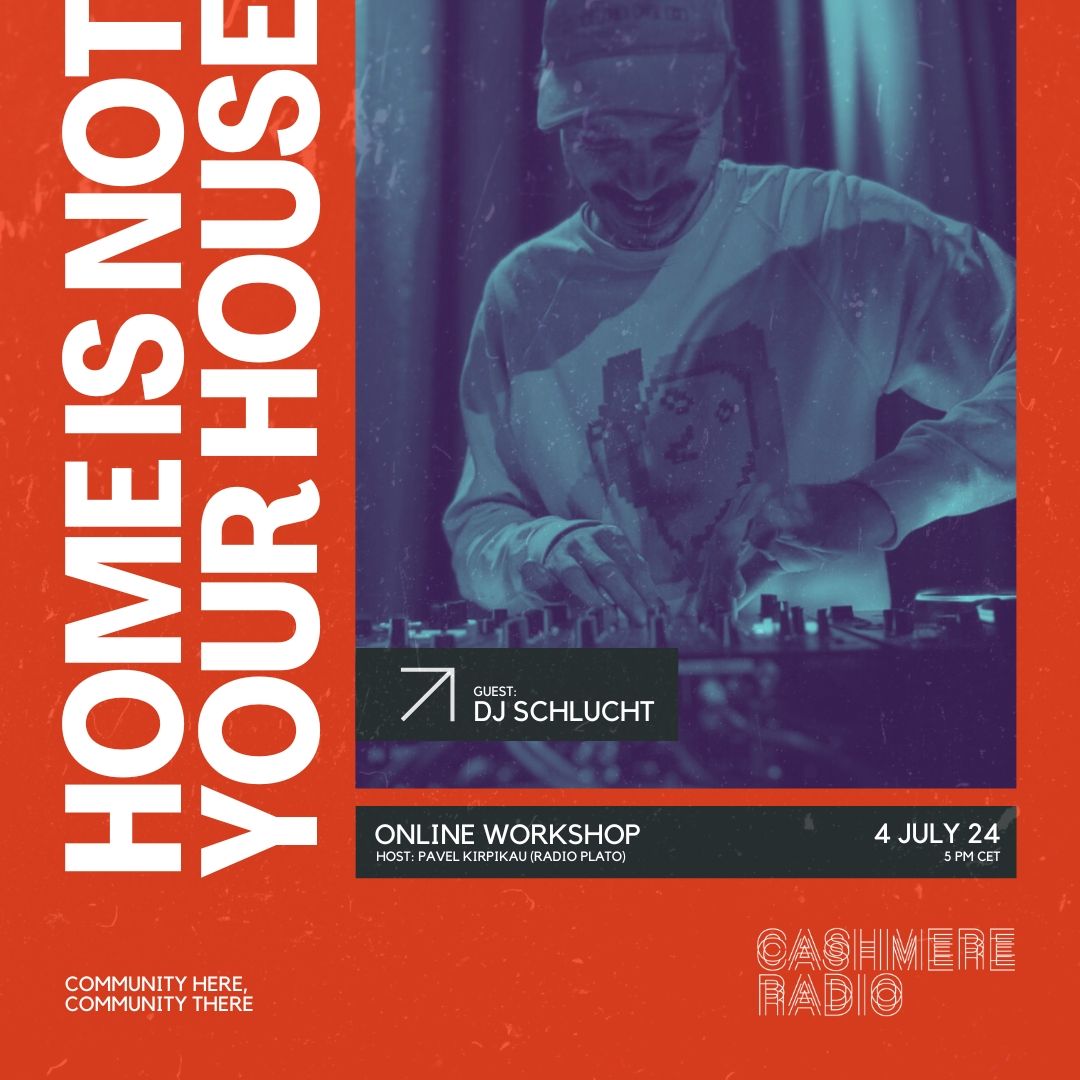
The evolving concept of community
As we navigate an increasingly digitized world, the definition of community continues to shift. The workshop explored how the gentrification of words and concepts affects our understanding of what it means to be part of a community, from the rise of online platforms to the physical spaces we inhabit.
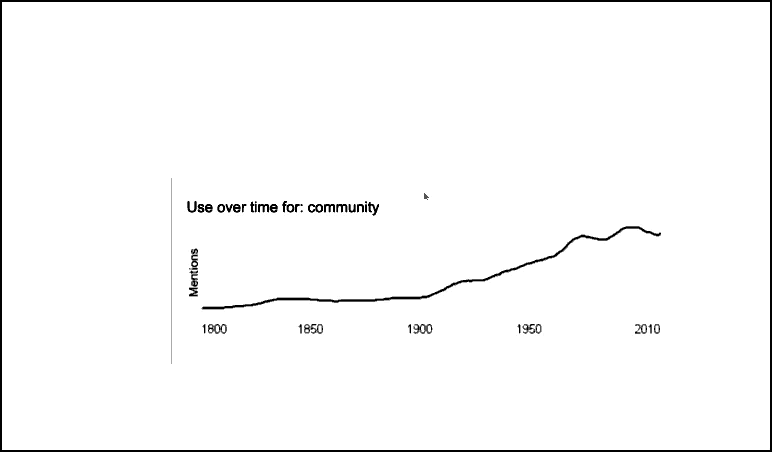
Markus presented a historical perspective on the use of the word "community" over time. His research showed that the term's popularity has ebbed and flowed, often resurging during times of societal change or crisis. From lifestyle magazines in the early on to theoretical books post-World War II, the concept of community has been continually redefined and reimagined.
"I often have the feeling when there are crises, the word community becomes more loud," Markus noted. This observation led to a discussion about how the demand for community often carries a sense of nostalgia, potentially stemming from outdated notions that may not align with our current realities.
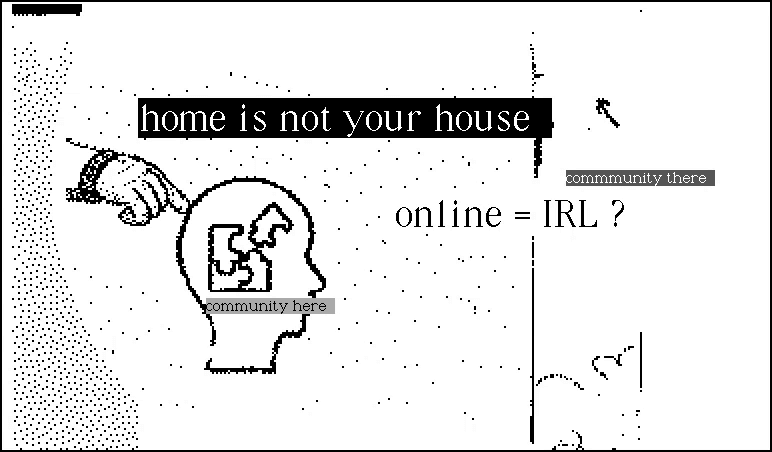
The digital divide: online vs. offline communities
One of the central themes of the workshop was the comparison between online and physical (in real life) communities. Participants shared their experiences and observations, highlighting both the strengths and limitations of each.
Andrea, the community manager for Are We Europe, noted that relationships in physical spaces often feel more natural and immediate. "In real life, you are forced to connect with the people in front of you," she observed. "While online, the connection has to be more intentional."
Alice, from THF Radio, added an interesting perspective, pointing out that physical communities can be more diverse and challenging. "When you're connected only by the fact that you're all sharing a physical space, you don't necessarily agree with people. It's maybe a bit more random," she explained. In contrast, online communities often bring together like-minded individuals around specific interests or goals.
The power of shared values
Despite the differences between online and offline communities, the workshop highlighted that shared values are crucial in both contexts. Sabrina, the managing director of Are We Europe, emphasized the importance of agreed-upon behavior and shared understanding in successful online communities.
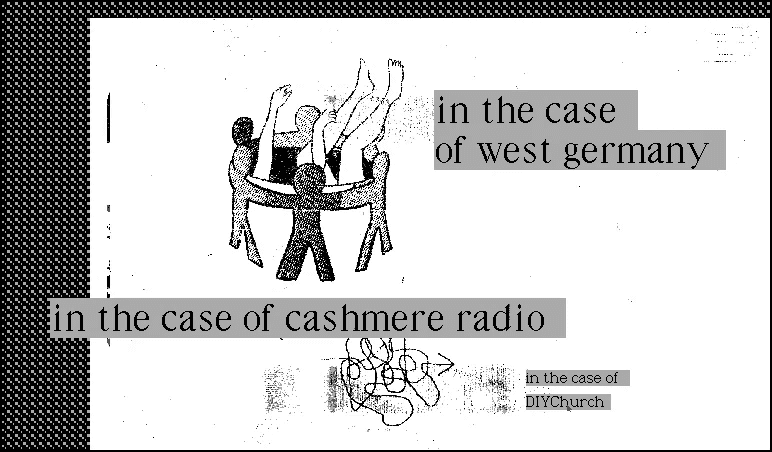
This idea of shared values extends to physical spaces as well. Markus shared his experience with Cashmere Radio, where the loss of their physical headquarters due to gentrification led to a reimagining of their community. "We were for two years without a building," he explained. "And then a lot of things became visible that you usually don't see when you have a building where you frequently meet... it made a lot of work visible and hierarchies that through this totally got shifted, which is very interesting."
The group also explored the role of shared values in more unexpected contexts. An intriguing point was raised about whether groups like the mafia could be considered communities. This led to a nuanced discussion about the nature of shared values and their potential for both positive and negative impacts. As one participant noted, "They're trying to build a kind of a better thing, but for themselves."
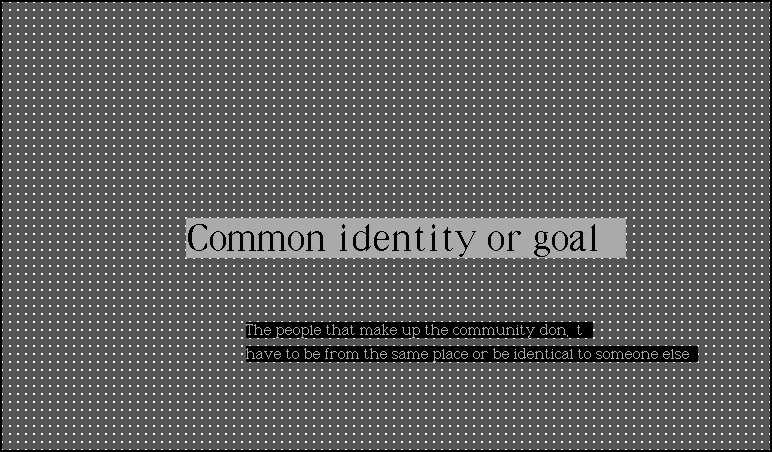
This example underscored the importance of critically examining the values that bind a community together and considering their broader societal impact.
Markus introduced an interesting perspective on the relationship between community and belief systems. He noted that in his research, "I found also interesting when researching around the word community, church would come up. And I think that's also interesting how a community is also a thing of a belief or trust and security, which maybe helps sometimes to figure out if something is a community or not."
This connection between community and belief systems raised questions about the role of shared narratives and ideologies in fostering a sense of belonging. It also highlighted the potential risks of communities becoming insular or cult-like if their shared values aren't balanced with openness to outside perspectives.
The commodification of community
One of the more critical discussions during the workshop centered on how the concept of community has been co-opted by capitalism. Markus presented a thought-provoking framework outlining different stages of capitalism, from monetary to community-driven, and how each stage has influenced our understanding of community.
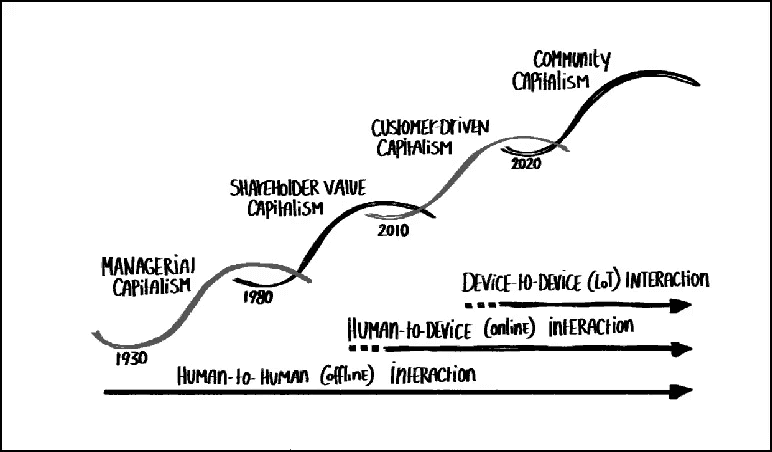
Participants noted how brands and products increasingly use the language of community to foster brand loyalty. This commercialization of community raised important questions: When does a group of consumers become a genuine community? Can authentic connections arise from shared product use or brand affinity?
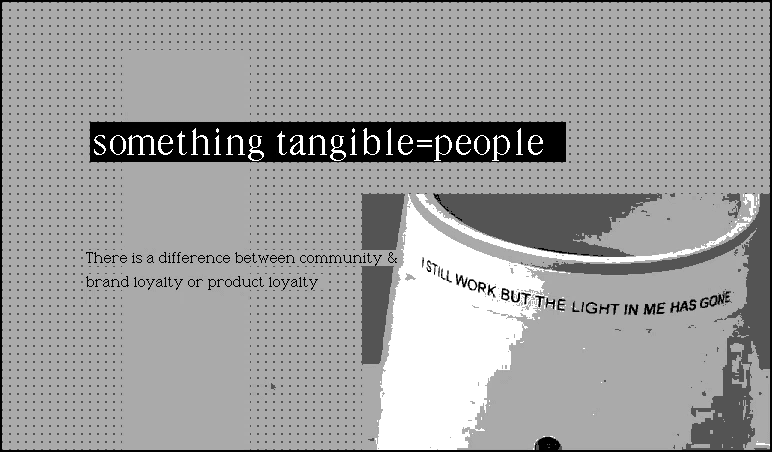
The workshop participants grappled with the challenge of distinguishing genuine communities from marketing constructs. They emphasized the need for critical thinking and intentionality in community building, especially in contexts where commercial interests are at play. As Andrea put it, "Our role as community makers or let's say like this is to redefine this word and give it the meaning that it deserves."
The role of physical spaces
Despite the growth of online communities, the workshop emphasized the continued importance of physical spaces in fostering genuine connections. Markus shared his experience running a venue called West Germany in Kreuzberg, Berlin. Here different communities could meet and use the space, highlighting how a physical location can bring diverse scenes and subcultures together.
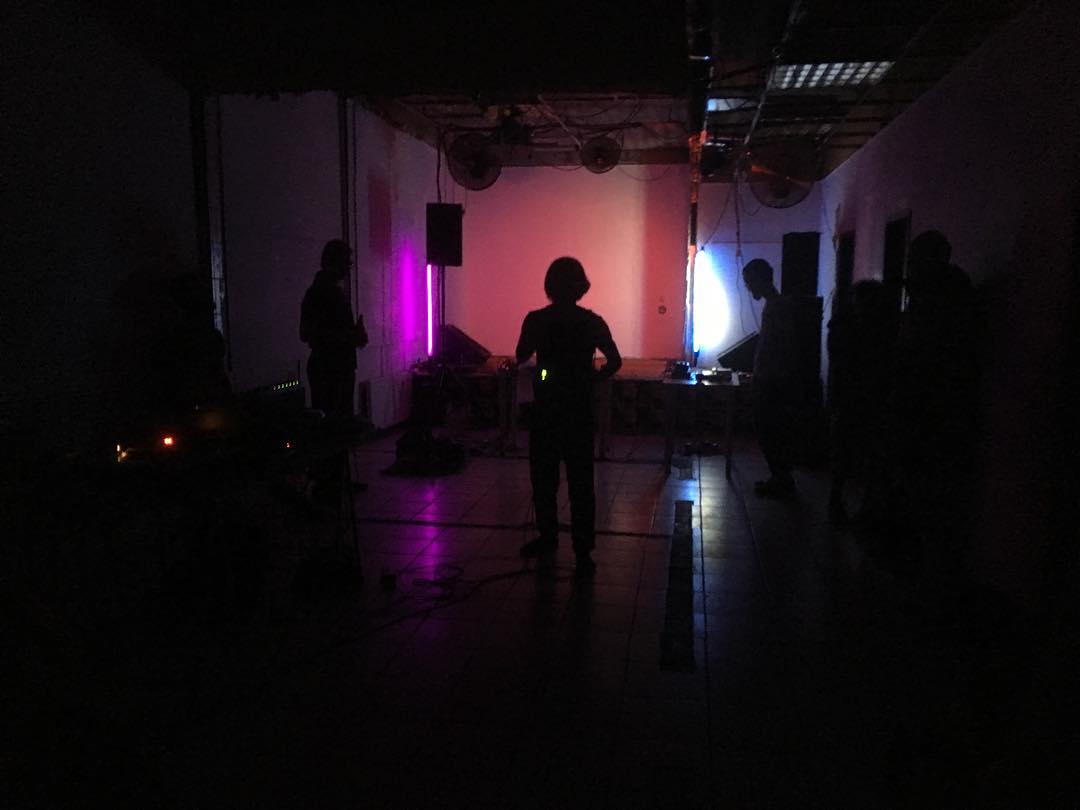
The discussion also touched on the tangible aspects of community-building, such as the shared responsibilities of maintaining a physical space. As Markus noted, "When you have a physical space, someone needs to clean the toilet, bring out the trash, clean the studio." These mundane tasks, often invisible in online communities, can create a deeper sense of shared ownership and commitment.
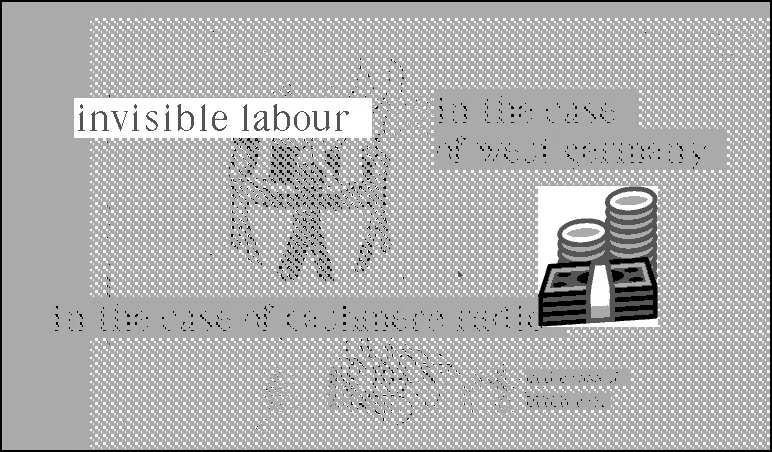
Markus also introduced an interesting concept of time as a form of capital in non-commercial community projects. "As we don't really make it for money, it's also maybe interesting to think that our capital or our money would be time, because we all invest our time in it," he explained. This perspective shifts the focus from financial transactions to the value of shared experiences and collective effort.
Challenges and opportunities
The workshop also addressed the challenges facing community-builders today. The overuse and commercialization of the term "community" have led to a degree of skepticism and confusion about what truly constitutes a community.
Participants grappled with questions such as: How can we create fluid, adaptive structures that balance individual freedom with collective responsibility? How can we maintain the spirit of experimentation and innovation while also creating stable, long-lasting communities?
An intriguing point was raised about the potential dark side of communities. As one participant asked, "When does a community become a cult?" This led to a discussion about the importance of maintaining healthy boundaries and open dialogue within communities.
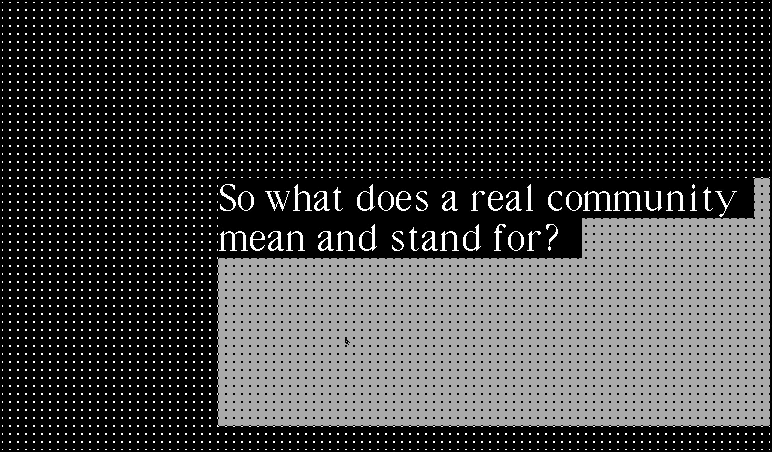
Conclusion
As we move forward in an increasingly interconnected yet often isolated world, the concept of community continues to evolve. The Radio Plato workshop offered valuable insights into this ongoing transformation, highlighting the need for intentionality, shared values, and a balance between digital connection and physical presence.
Sabrina shared a community framework used by Are We Europe, which considers various elements such as what brings people together, what holds them together, how they connect regularly, and what roles individuals play within the community. This comprehensive approach offers a clear path forward for those seeking to build meaningful communities in both digital and physical spaces.
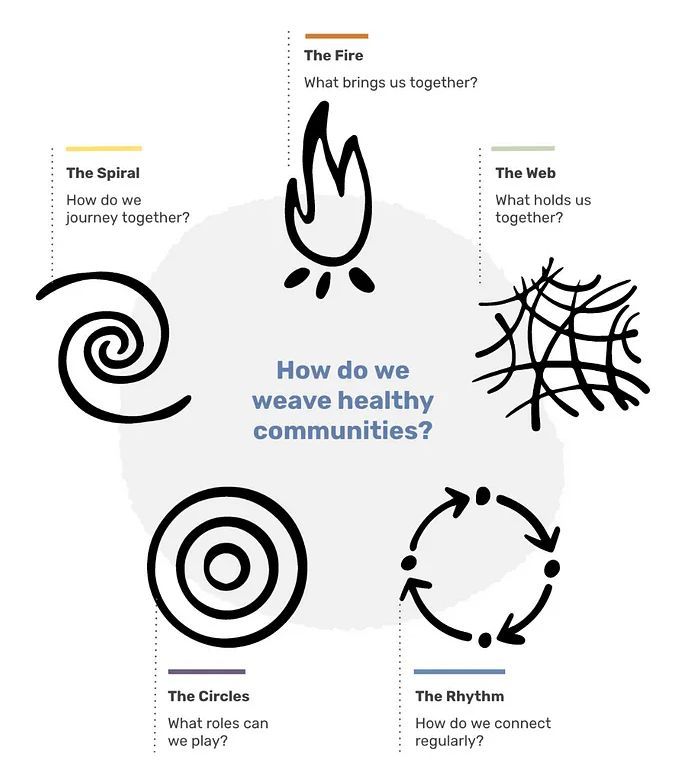
Whether it's a community radio station, an online platform, or a local gathering space, the essence of community lies in the connections we forge, the values we share, and the impact we make on each other's lives. As we navigate the complexities of the modern world, perhaps the true measure of a community is not in its size or platform, but in its ability to create a sense of belonging, foster meaningful relationships, and inspire positive change.
In the words of one participant, "Let's just keep having fun." Perhaps this simple sentiment captures the essence of community-building: coming together, enjoying each other's company, and creating something meaningful in the process. As we continue to redefine and reimagine community in the digital age, may we never lose sight of the joy and connection at the heart of it all.
_The word “community“ is used 64 times throughout this article.
